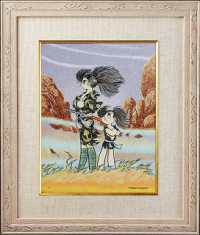Description
Few sociologists have commanded a larger readership than Erving Goffman. From his first book, The Presentation of Self In Everyday Life (1956), to his last, Forms of Talk (1981), his publications were eagerly awaited and his ideas widely discussed. In 1982 when he died at the age of 60, the response was that a figure of outstanding importance had left the stage of modern sociology. In this powerful study, Tom Burns provides a meticulous and incomparable examination of Erving Goffman's work. Burn's arranges Goffman's writings into a series of themes such as 'Social Order', 'Acting Out', normalisation', 'abnormalisation', 'grading and discrimination' and 'realms of being'. This is a useful device because it brings out the richness and diversity of Goffman's preoccupations. This richness and diversity is often lost in secondary accounts which insist on labelling Goffman as a 'micro-sociologist' or 'symbolic interactionist'. In a painstaking and accurate discussion Burns shows the meaning and application of Goffman's key concepts. He also guides the reader in the direct influences upon Goffman's thought. He shows more clearly than anyone else how Goffman was influenced by Durkheim, Simmel, the Chicago School, animal ethology and linguistic philosophy. The book ends with a crisp and incisive critical assessment of Goffman's sociology.
Table of Contents
1. Preliminaries 2. Social Order - Interaction Order 3. Involvement, Interdependence and Alienation 4. Friends, Polite Fictions, and Enemies 5. Acting Out 6. `Normalisation' 7. `Abnormalisation' 8. `Grading and Discrimination' 9. Realms of Being 10. Through the Looking-Glass 11. Towards a Rhetoric of Talk 12. Talk and its Audiences 13. Loose Ends, and Some Connections
-

- 文具・雑貨・特選品
- ジュエリー絵画(R) 手塚治虫 どろろ…
-

- DVD
- 盗聴作戦






